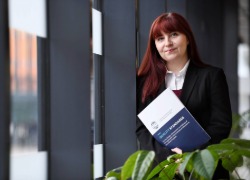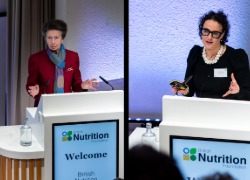Teesside scores highly in the 2011 NSS
History students at Teesside are among the most satisfied in the whole of the UK, according to the 2011 National Student Survey (NSS).
The annual survey compiles UK undergraduates’ responses to a diverse range of questions, and Teesside’s History students awarded their course an overwhelming 100% for overall satisfaction, ranking their subject in first place nationally.
Other high-scoring subjects at Teesside for overall student satisfaction include: • English Studies – 96% (in seventh place nationally) • Subjects allied to Medicine (primarily Occupational Therapy) – 94% (11th place nationally) • Anatomy, Physiology and Pathology (Physiotherapy) – 90% • Psychology – 89% • Sports Science – 89% • Sociology – 87% • Electronic and Electrical Engineering – 85%. • Satisfaction with teaching overall has also increased to 84%.
Teesside continues to be rated highly Professor Caroline MacDonald, one of Teesside University’s Deputy Vice-Chancellors, said: ‘This is the sixth year of the National Student Survey and I am very pleased that students continue to rate Teesside University highly in so many course areas.
‘These results very much reflect the talent and the commitment of colleagues across the University who support our students so well. The student satisfaction figure in History, of 100%, is a source of huge pride for the University.’
One satisfied Teesside History graduate is Lee Musson, who is about to start a one-year teacher training course in York, which will qualify him as a primary teacher in 2012.
He said of the Teesside History degree: ‘I cannot praise Teesside’s History department enough, they were really helpful. They gave good guidance on how to improve and develop my own skills.
‘I loved studying History, gaining an understanding about what makes us tick. The Victorians was probably my favourite, a massive transformational era, with the advent of rail, the onset of the industrial revolution and the accompanying social changes.’
 Teesside academic leads the way in setting professional
...
Teesside academic leads the way in setting professional
... Teesside University leads new research into Roman Empire’s
...
Teesside University leads new research into Roman Empire’s
... Nourishing Tomorrow: my insights from the British Nutrition
...
Nourishing Tomorrow: my insights from the British Nutrition
...